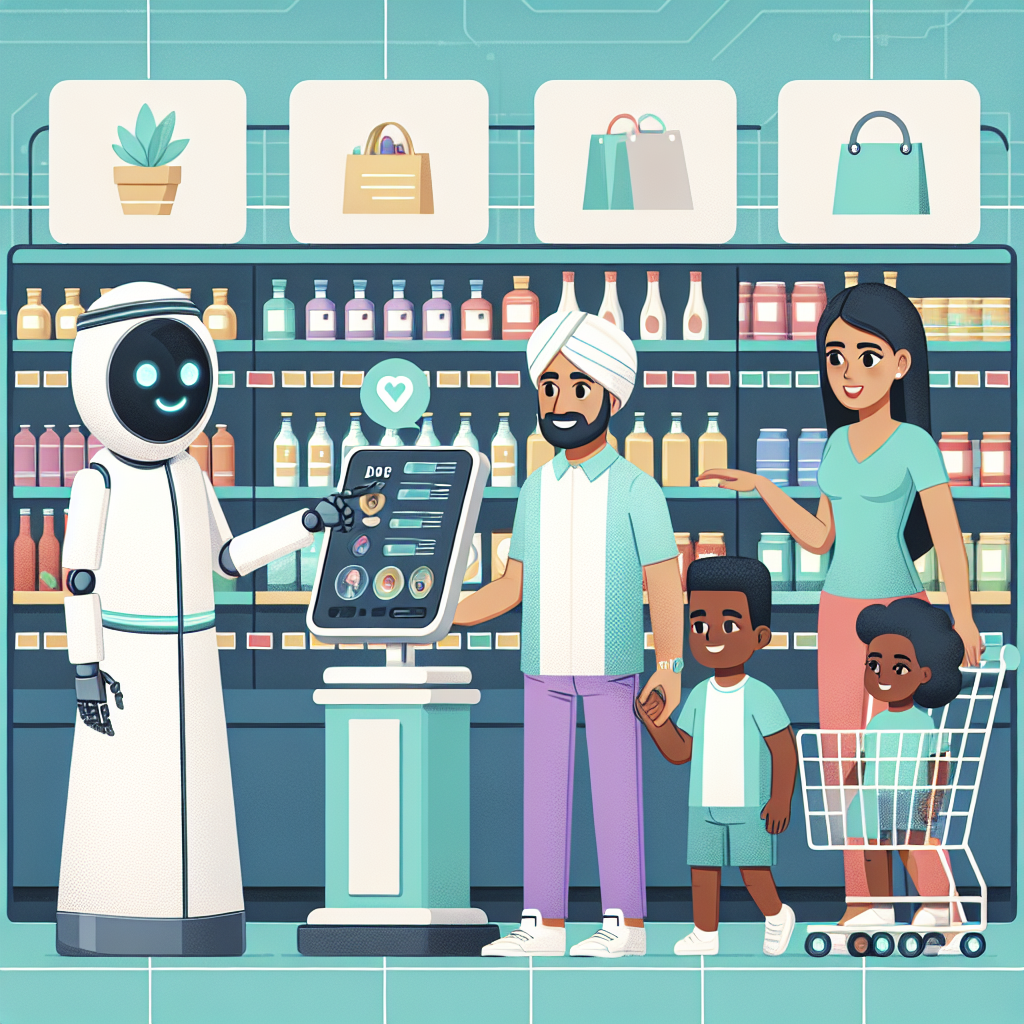The Impact of AI on Retail Personalization
Artificial Intelligence (AI) has been transforming the retail industry in numerous ways, with one of the most significant impacts being on personalization. Retailers are increasingly using AI to tailor their offerings to individual customers, providing a more personalized shopping experience that leads to increased sales and customer satisfaction. In this article, we will explore the various ways in which AI is revolutionizing retail personalization and the benefits it brings to both retailers and consumers.
1. Personalized Product Recommendations
One of the most common applications of AI in retail personalization is in providing personalized product recommendations to customers. By analyzing customer data such as purchase history, browsing behavior, and demographic information, AI algorithms can predict what products a customer is likely to be interested in and recommend them accordingly. This not only helps customers discover new products that they may not have otherwise found but also increases the chances of making a sale by presenting them with relevant options.
2. Dynamic Pricing
AI-powered dynamic pricing is another way in which retailers are personalizing the shopping experience for customers. By analyzing factors such as demand, competitor pricing, and customer behavior, AI algorithms can adjust prices in real-time to maximize revenue and profitability. This allows retailers to offer personalized discounts and promotions to individual customers based on their purchasing patterns and preferences, leading to increased customer loyalty and satisfaction.
3. Personalized Marketing Campaigns
AI is also being used to personalize marketing campaigns for retail customers. By analyzing customer data and behavior, AI algorithms can segment customers into different groups based on their preferences and purchasing patterns, allowing retailers to target them with personalized marketing messages and offers. This not only increases the effectiveness of marketing campaigns but also helps retailers build stronger relationships with their customers by providing them with relevant and timely information.
4. Virtual Assistants and Chatbots
AI-powered virtual assistants and chatbots are increasingly being used in retail to provide personalized customer service and support. These virtual assistants can answer customer queries, provide product recommendations, and assist with the shopping process, all in a personalized and interactive manner. By leveraging AI technology, retailers can provide a more personalized and efficient customer service experience, leading to increased customer satisfaction and loyalty.
5. Inventory Management
AI is also revolutionizing inventory management in retail by providing retailers with real-time insights into their inventory levels and demand forecasting. By analyzing historical sales data, customer behavior, and external factors such as weather and seasonality, AI algorithms can predict demand for specific products and optimize inventory levels accordingly. This helps retailers reduce stockouts, minimize excess inventory, and improve overall operational efficiency.
FAQs
Q: How does AI improve the shopping experience for customers?
A: AI improves the shopping experience for customers by providing personalized product recommendations, dynamic pricing, personalized marketing campaigns, virtual assistants, and chatbots, and optimized inventory management.
Q: What are the benefits of AI in retail personalization for retailers?
A: The benefits of AI in retail personalization for retailers include increased sales and revenue, improved customer satisfaction and loyalty, enhanced marketing effectiveness, and optimized inventory management.
Q: How can retailers implement AI in their personalization strategies?
A: Retailers can implement AI in their personalization strategies by investing in AI technology, collecting and analyzing customer data, and leveraging AI-powered tools and algorithms to personalize product recommendations, pricing, marketing campaigns, customer service, and inventory management.
Q: What are the challenges of implementing AI in retail personalization?
A: Some of the challenges of implementing AI in retail personalization include data privacy and security concerns, integration with existing systems and processes, skill and resource constraints, and the need for continuous monitoring and optimization of AI algorithms.
In conclusion, AI is revolutionizing retail personalization by providing retailers with powerful tools and algorithms to tailor their offerings to individual customers. By leveraging AI technology, retailers can improve the shopping experience for customers, increase sales and revenue, enhance customer satisfaction and loyalty, and optimize inventory management. As AI continues to advance, its impact on retail personalization is only expected to grow, leading to a more personalized and efficient shopping experience for consumers.

